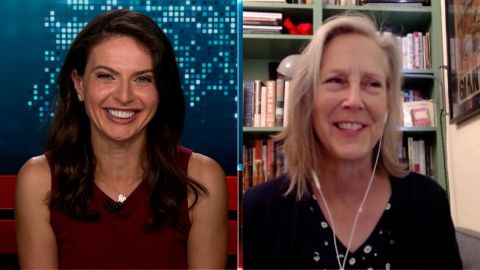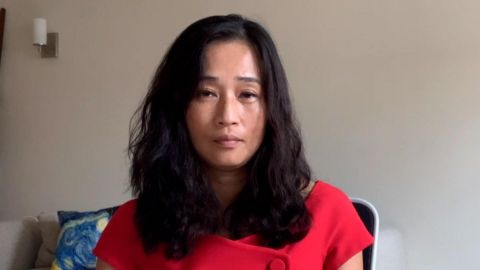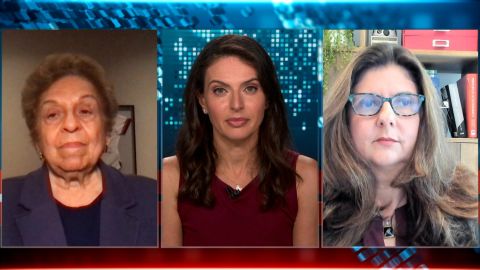Read Transcript EXPAND
BIANNA GOLODRYGA: you are known, you are famous for taking a look at the quirky, weird, magical side of science at times and really examining aspects that a lot of people don’t. For example, the human digestive system and gulp, cadavers and stiff. What was it that drew you to focus on the human wildlife conflict for this book?
MARY ROACH, AUTHOR, “FUZZ: WHEN NATURE BREAK THE LAW”: Well, I kind of used up the human body, at least the approachable parts of it. So, I thought, well, I needed to look somewhere else. And a number of things happened at the same time. But the one that I really trace it to is this very bizarre 1906 book called “The Criminal Prosecution and Capital Punishment of Animals.” And it covers the — how we as humans dealt with animals in the 1500s, 1600s and 1700s. And in fact, animals would be arrested, put in prison, put on trial, assigned legal representation and sometimes executed. And I remember thinking, that’s not a very good approach. The legal system is probably not the way to go. The laws are not — obviously, not written for animals. They are written for humans. So, I thought what has science brought to the table and what are some better ways to resolve — not just resolve these conflicts, but also prevent them from happening in the first place.
GOLODRYGA: Well, give us some examples. Because I know you talk about pigs being prosecuted. And that is more aligned with property, right? It’s the owner of the pig that’s being prosecuted, but it still is a bit odd to see that the pig is being sued. But you talk about an example in Italy in the 17th century where caterpillars were eating crops are prosecuted. I can’t begin to wrap my head around how that prosecution would have worked. I mean, are they entitled to any defense of their own? Or I mean, how does this happen?
ROACH: Yes. Yes, that was crazy. Yes, it was 1659 in a province of Northern Italy. And caterpillars were doing their thing, they were ravaging the crops, and the city fathers nailed to trees in the area a legal summons telling the caterpillars to appear in court on a certain day at which point they would be assigned legal representation. Obviously, the caterpillars did not show up in court, but a legal process did occur and the wise city fathers decided, well, we’ll set aside alternate land for the caterpillars so that they may enjoy their sustenance and leave us alone. And, of course, by then, the caterpillars had pupated and were gone. And so, everybody kind of left the legal proceedings satisfied. I think it was just a way to show — a way to show off, in a way, by those in power to say, we have dominion over all, even nature, even the lowliest caterpillar and we will find a solution. But it was very bizarre. And I just though — tried to imagine who the lawyer was for the caterpillars.
About This Episode EXPAND
Donna Shalala; Betsey Stevenson; Lingling Wei; Kathryn Sherman; Mary Roach
LEARN MORE



